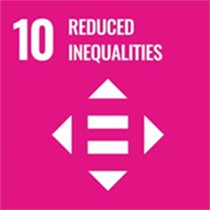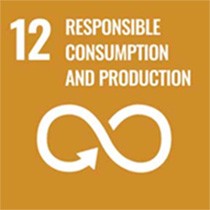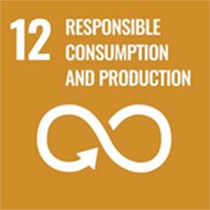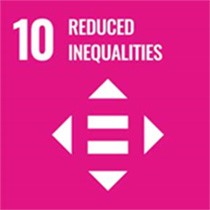2023 to 2027 Departmental Sustainable Development Strategy
Executive Summary
The 2022 to 2026 Federal Sustainable Development Strategy (FSDS) supports Canada’s efforts to advance the 17 Sustainable Development Goals (SDGs) of the United Nations 2030 Agenda for Sustainable Development. This new strategy focuses on the 17 SDGs and highlights federal government actions over the next four years to support their achievement. The Parole Board of Canada (PBC) is pleased to present its first 2023 to 2027 Departmental Sustainable Development Strategy (DSDS) in response to the new strengthened Federal Sustainable Development Act (the Act).
The PBC is an independent administrative tribunal that is continuously making efforts to reduce and eliminate inefficiencies to deliver its focused public safety mandate and contribute to a sustainable future. The DSDS herein describes the activities, actions and commitments that will advance the targets and implementation strategies enriched in the SDGs set out in the FSDS. Over the next four years, the PBC will be contributing to and reporting on progress made on three SDGs:
Advancing reconciliation with Indigenous peoples and taking action to reduce inequalities by continuing to advance the implementation of the United Nations Declaration on the Rights of Indigenous Peoples Act in support of the UN Declaration 2023 to 2028 Action Plan;
Strengthening PBC’s green procurement by integrating environmental considerations into its procurement processes and progressing in the transformation of its fleet vehicles to meet Canada’s 2030 Emissions Reduction Plan; and
In addition, when necessary, the PBC will adopt environmental considerations in the development of its policies, plans and programs that could engender important environmental effects, in conformity with the Cabinet Directive on the Environmental Assessment of Policy, Plan and Program Proposals.
SECTION 1
Introduction to the Departmental Sustainable Development Strategy
The 2022 to 2026 FSDS presents the Government of Canada’s sustainable development goals and targets, as required by the Act. It provides a balanced view of sustainable development priorities, including achieving net-zero greenhouse gas emissions; conserving nature and biodiversity for future generations; advancing reconciliation with First Nations, Inuit and Métis communities; promoting gender equality; and supporting innovation and economic growth.
In keeping with the purpose of the Act, to make decision-making related to sustainable development more transparent and accountable to Parliament, the PBC supports the goals and implementation strategies laid out in the FSDS through the activities, actions and planned initiatives described in this DSDS.
The Act also sets out seven principles that must be considered in the development of the FSDS as well as in all DSDS’s:
- Sustainable development is based on an efficient use of natural, social and economic resources and the need for the Government of Canada to integrate environmental, economic and social factors in the making of all of its decisions;
- Sustainable development as a continually evolving concept;
- Intergenerational equity;
- Openness and transparency;
- Involving Indigenous peoples;
- Collaboration; and
- Results and delivery approach.
The PBC has considered and incorporated these principles in the development of this DSDS.
In order to promote coordinated action on sustainable development across the Government of Canada, this departmental strategy integrates efforts to advance Canada’s implementation of the 2030 Agenda National Strategy, supported by the Global Indicator Framework (GIF) and Canadian Indicator Framework (CIF) targets and indicators. The strategy also now captures SDG initiatives that fall outside the scope of the FSDS to inform the development of Canada’s Annual Report on the 2030 Agenda and the SDGs.
SECTION 2
The Parole Board of Canada’s Sustainable Development Vision
The PBC is an independent administrative tribunal that, as part of the Canadian criminal justice system, makes independent, quality conditional release, record suspension/pardons and expungement decisions, as well as clemency recommendations, in a transparent and accountable manner, while respecting diversity and the rights of offenders and victims, in accordance with its statutory responsibilities and authorities. The PBC contributes to the Government of Canada’s outcome of a safe and secure Canada by facilitating, as appropriate, the timely reintegration of offenders and the sustained rehabilitation of individuals into society as law-abiding citizens.
This is PBC’s first DSDS in response to the 2022 to 2026 FSDS, which is the first strategy tabled under the strengthened Federal Sustainable Development Act. To develop this DSDS, the PBC collaborated with various internal key leads to identify sustainable development activities, actions and commitments that align with PBC’s values statements and core responsibilities. The following includes a high-level vision of the measures that will be taken to contribute to SDGs 10, 12, and 13. Section 4 of this DSDS characterizes the specific actions that will be progressively carried out and measured in the years to follow, in addition to the activities described below.
Goal 10: Advance reconciliation with Indigenous Peoples and take action to reduce inequality
The PBC is committed to taking action to ensure anti-racism, equity and inclusion is incorporated in its policies and business operations, which contributes to broader changes across Canada’s criminal justice system. The PBC continues to innovate and strengthen its responsiveness to the needs of specific groups, including women offenders, Indigenous peoples, racialized and vulnerable groups, and individuals serving life sentences.
The Department of Justice Canada released an Action Plan as a result of the United Nations Declaration on the Rights of Indigenous Peoples Act that provides a roadmap of the actions Canada needs to take, in collaboration with Indigenous peoples, to implement the principles and rights set out in the UN Declaration to further advance reconciliation in a tangible way. The PBC is committed to the shared priorities and has taken action under the civil and political rights goal to ensure that Indigenous peoples are supported during the conditional release process.
Goal 12: Reducing waste and transition to zero-emission vehicles
Over the past few years, the PBC has adopted green procurement practices that promote broader environmental benefits and stewardship. By implementing small but important economic gestures, the Board makes a difference in the overall contribution to improve environmental adverse effects. At the PBC, battery recycling disposal boxes were included in some of the business centres permitting staff to recycle their used batteries to help reduce solid waste pollution. PBC also recently disposed of old office printers that produced higher cartridge pollution and other unhealthy emissions, and retained larger commercial business printers that were more environmentally friendly. Reducing paper consumption and its carbon footprint continues to be a focus.
The PBC implemented an electronic document management system for effective recordkeeping practices that meet the legal and policy requirements for information and records management of electronic, paper documents and records. The move to this system was an exciting opportunity for the PBC to effectively manage and retain all of its information resources of business value securely and in a consistent manner, which contributes to the reduction of paper waste and builds efficiencies for everyone. This includes digitizing previously paper-based processes to electronic formats, such as financial authorizations, meeting agendas and minutes, invoices, senior management briefing notes and binders, security screenings, etc. In keeping with these objectives and where security considerations permit digitization, the PBC has transferred all case management files from paper to digital format within its Integrated Decision System. Since its implementation in 2017, all case preparation and management for all offender files with an upcoming review or hearing is completed through accessing the fully electronic file of the offender. This has resulted in the removal of requirements to physically transfer files between locations and a substantial reduction of both paper use and space required for the management and storage of paper files.
Transitioning to a more digital approach while leveraging IT tools that meet the PBC’s evolving requirements will also help improve video and teleconferencing capabilities, increase opportunities for virtual and remote learning, improve client services and promote green meeting convocations. Moving forward, to meet Canada’s 2030 emissions reduction target, the net-zero emissions agenda, and this FSDS goal, the PBC will strive to incorporate green procurement training to identified functional specialists as part of their ongoing learning objectives to strengthen green procurement, and develop a plan to carry out the transformation of the remaining PBC fleet vehicles.
Goal 13: Taking action on climate change and its impacts
Canadians increasingly work, learn, and engage with the federal government online, and their expectations for easy to use, accessible digital options continue to grow. The PBC will continue to update and enhance innovative Information Management/Information Technology (IM/IT) systems and processes to ensure it is positioned to meet these expectations. Likewise, the very nature of administrative tribunals is evolving in Canada, and the PBC finds itself operating in a much more complex policy, legal and public environment, requiring new methods and resources to effectively continue to deliver on its core public safety mandate. PBC continues to facilitate opportunities for flexible work arrangements, such as remote work, while creating a sustainable and healthy workplace for all and adapting to evolving environmental changes. Building and sustaining a healthy workplace that allows for each individual to bring the best of their diverse talents, skills and energy to deliver services to Canadians is a priority for the PBC.
The impacts of environmental and climate change affect everyone. The Greening Government Strategy will help guide the Government of Canada to make significant progress towards climate-resilient development in the spirit of achieving net-zero emissions by 2050, thereby supporting the blueprint for a better future. To support this FSDS goal and the implementation of the Greening Government Strategy, the PBC will be maturing its Building Emergency and Evacuation Plan (BEEP) and each PBC office will circulate its evacuation plans to all employees and Board members. These evacuation plans will also take the hybrid work model into account. Various awareness messages and subsequent emergency response exercises are planned for the coming years to ensure that the PBC is ready and equipped to respond to adverse risks from climate and environmental effects. Taking these measures will help support the SDG Global Indicator Framework, particularly target 13.3., improve education, awareness-raising and human and institutional capacity on climate change mitigation, adaptation, impact reduction and early warning.
SECTION 3
Listening to Canadians
As required by the Federal Sustainable Development Act, the PBC has reviewed the overall comments on the draft 2022 to 2026 FSDS made during the public consultation held from March 11 to July 9, 2022.
During the public consultation, more than 700 comments were received from a broad range of stakeholders, including governments, Indigenous organizations, non-governmental organizations, academics, businesses, and individual Canadians in different age groups and of various backgrounds. The draft FSDS was also shared with the appropriate committee of each House of Parliament, the Commissioner of the Environment and Sustainable Development, and the Sustainable Development Advisory Council for their review and comment.
What We Heard
Across the submissions received, the PBC identified sustainable development key priorities and issues under the three SDGs that affect us. These priorities include the following:
- Reducing inequalities through continuous engagement with Indigenous peoples and communities – Canadians noted the importance of consultation and engagement with Indigenous peoples and communities and recognizes the value of how these collaborations are undertaken.
- Government Support for the adoption of Zero Emission Vehicles – Canadians have expressed the desire for the government to address barriers to the adoption of electric and zero-emission vehicles.
- Green Procurement – Canadians want to see the Government of Canada strengthen and implement net-zero procurement as a means to incentivize companies’ voluntary engagement in the race to net zero.
What We Did
The PBC took the above-mentioned key priorities and issues into consideration in the development of this DSDS.
While the PBC is not a lead identified in the Federal Implementation Plan for the 2030 Agenda for Sustainable Development and the UN Sustainable Development Goals, the organization takes into account the Government of Canada’s commitment to achieving these goals in its strategic initiatives and activities.
Including Indigenous Elders and/or Cultural Advisors in PBC’s hearing process has been and continues to be instrumental in the success of the decision-making for Indigenous offenders. The urgency in taking action to reduce inequality is also a shared priority for the PBC in delivering its core responsibilities. The PBC will continue its work to implement the measures identified in the UN Declaration Action Plan.
The PBC is also committed to strengthen its green procurement practices and support the implementation of a net-zero procurement standard in its procurement practices. The PBC has slowly started the transformation of its fleet vehicles to a minimum number of hybrids, and will continue its work to electrify the remainder of its fleet vehicles. In parallel, the PBC will prioritize the development of building emergency evacuation plans to ensure business resiliency response.
Please find more information on the FSDS public consultation and its results in the FSDS Consultation Report.
SECTION 4
The Parole Board of Canada’s Commitments



FSDS Context:
The PBC will contribute to this goal and the UN Declaration Act target and implementation strategy by ensuring that it is responsive to the needs of Indigenous peoples during the conditional release process. Following the release of the 2023 to 2028 Action Plan as a result of the UN Declaration Act, the PBC is committed to deliver on the measures entrusted with in virtue of the Action Plan, in the spirit of advancing reconciliation.
In addition to providing training to employees and Board members to support cultural competency, including the Indigenous Cultural Responsiveness Training (ICRT) which is part of Board members’ mandatory core training, the PBC will introduce additional training opportunities to deepen the knowledge and awareness of employees that relate to the implementation of the UN Declaration Act, directly supporting the target theme for this FSDS goal.
Target theme: Advancing reconciliation with First Nations, Inuit, and the Métis communities
Target: Between 2023 and 2026, and every year on an ongoing basis, develop and table annual progress reports on implementing the United Nations Declaration on the Rights of Indigenous Peoples Act (Minister of Justice and Attorney General of Canada)
| IMPLEMENTATION STRATEGY | DEPARTMENTAL ACTION | PERFORMANCE INDICATOR STARTING POINT TARGET |
HOW THE DEPARTMENTAL ACTION CONTRIBUTES TO THE FSDS GOAL AND TARGET AND, WHERE APPLICABLE, TO CANADA’S 2030 AGENDA NATIONAL STRATEGY AND SDGs |
|---|---|---|---|
| Implement the United Nations Declaration on the Rights of Indigenous Peoples Act (UNDRIP) | Provide Indigenous cultural competency training to all employees and Board members.
Program: Internal Services
|
Performance indicators: Percentage of Board members that have completed the Indigenous Cultural Responsiveness Training (ICRT) within one year of their active mandate. Percentage of employees that have completed Indigenous cultural competency training within one year of being appointed. Starting point: As of March 31, 2023, all Board members who have been active in their mandate for a minimum of 12 months have completed the ICRT. Provide mandatory Indigenous cultural competency training to employees: New initiative starting in 2023 to 2024. Target: 100% of Board members who have been active in their mandate for a minimum of 12 months have completed the ICRT. 100% of employees have completed Indigenous cultural competency training within one year of being appointed. |
Reinforcing training to all employees will enhance their cultural competency skills and awareness of the history and issues related to First Nations, Inuit and Métis in Canada, and understand the purpose of the United Nations (UN) Declaration.
This action contributes to pillar 2, cultural competency in the Many Voices One Mind (MVOM) scorecard summary report, the Clerk’s Call to Action, provides education to understand and implement the UN Declaration and its action plan, which directly contributes to the development of this FSDS goal, target and implementation strategy. Relevant targets or ambitions: GIF Target - 10.3 Ensure equal opportunity and reduce inequalities of outcome, including by eliminating discriminatory laws, policies and practices and promoting appropriate legislation, policies and action in this regard.
|

GOAL 12:
REDUCE WASTE AND TRANSITION TO ZERO-EMISSION VEHICLES
FSDS Context:
In 2022, the PBC introduced a Policy on Asset Management, in support of Treasury Board’s Policy on the Planning and Management of Investments, which defines the acquiring, disposing and life-cycle of assets and technologies that are necessary to support program delivery to Canadians. In the spirit of strengthening green procurement practices that are attainable and sustainable, at the next review cycle of each related policy instrument on the management of assets, a green procurement optic will be considered to promote the adoption of clean technology and assets that support responsible consumption. Mandatory green procurement training will be added to identified procurement and material management specialists’ learning objectives to bolster and nourish green procurement practices in the public service, which will directly contribute to this implementation strategy, to this FSDS goal and the net-zero procurement target. An employee who is also identified and assigned an acquisition card for the purpose of acquiring goods or services on behalf of the PBC will also complete this training.
To contribute to Canada’s 2030 emissions reduction target, the net-zero emissions agenda, and this FSDS goal and target, the PBC will examine its current fleet vehicles and identify the vehicles that need to be replaced with a lower-carbon, preferably zero-emission vehicle, in conformity with the new requirements outlined in Appendix A of the Directive on the Management of Material. This action will directly support the implementation strategy of transforming the federal light-duty fleet, and contribute to the milestone of purchasing zero-emission vehicles in support of the goal and the net-zero procurement target.
Target theme: Federal Leadership on Responsible Consumption
Target: The Government of Canada’s procurement of goods and services will be net-zero emissions by 2050, to aid the transition to a net-zero, circular economy (All Ministers)
| IMPLEMENTATION STRATEGY | DEPARTMENTAL ACTION | PERFORMANCE INDICATOR STARTING POINT TARGET |
HOW THE DEPARTMENTAL ACTION CONTRIBUTES TO THE FSDS GOAL AND TARGET AND, WHERE APPLICABLE, TO CANADA’S 2030 AGENDA NATIONAL STRATEGY AND SDGs |
|---|---|---|---|
| Transform the federal light-duty fleet | All new purchases of light-duty fleet vehicles will be at minimum hybrids or preferably zero-emission vehicles (ZEVs), condition to operational feasibility, availability and the appropriate infrastructure in place across PBC regional offices. Program: Internal Services |
Performance indicator: Percentage of PBC’s fleet (overall) that are either hybrid or ZEVs.
In 2022 to 2023, 41% of PBC fleet vehicles are hybrid. Target: 75% of PBC fleet vehicles are hybrid or ZEV by 2027. |
PBC has replaced nearly half of its light-duty fleet vehicles with a hybrid, but more progress is required to be conducive in meeting Canada’s Agenda for 2030. PBC will undertake an analysis of the current fleet vehicles and develop a plan to progress in the transformation of its light-duty fleet vehicles, where suitable options are available and meet PBC operational feasibility.
By transforming the current fleet vehicles to a lower carbon vehicle, such as a hybrid or ZEV, this will reduce greenhouse gas emissions from conventional fleet operations and contribute toward the transition of sustainable consumption and fulfill the 2030 Emission Reduction plan. Relevant targets or ambitions: CIF Ambition: 12.2 Canadians consume in a sustainable manner CIF Indicator: 12.2.1 Proportion of businesses that adopted selected environmental protection activities and management practices GIF Target: 12.7 Promote public procurement practices that are sustainable, in accordance with national policies and priorities.
|
| Strengthen green procurement criteria | Ensure that all identified procurement and materiel management specialists are trained in green procurement prior to obtaining delegation and within six months of being identified.
Program: Internal Services and Finance and Procurement |
Performance Indicator: Percentage of procurement and materiel management specialists are trained in green procurement within six months of being identified. Percentage of acquisition card holders are trained in green procurement within one year of being identified. Starting point: New initiatives starting in 2023 to 2024. Target: 100% of procurement officers and material management specialists are trained within six months of being identified. 100% of acquisition card holders are trained within one year of being identified. |
Green procurement incorporates environmental considerations into purchasing decisions and is expected to motivate suppliers to reduce the environmental impact of the goods and services they deliver, and their supply chains.
Relevant targets or ambitions: CIF Ambition: 12.2 Canadians consume in a sustainable manner CIF Indicator: 12.2.1 Proportion of businesses that adopted selected environmental protection activities and management practices GIF Target: 12.7 Promote public procurement practices that are sustainable, in accordance with national policies and priorities. |
Initiatives advancing Canada’s implementation of SDG 12 – Responsible Consumption and Production
The following initiatives demonstrate how the PBC’s programming supports the 2030 Agenda and the SDGs, and supplements the information outlined above.
| PLANNED INITIATIVES | ASSOCIATED DOMESTICS TARGETS OR AMBITIONS AND/OR GLOBAL TARGETS |
|---|---|
Develop a Green Procurement Framework (GPF) Every year, all senior managers must prepare their planning approach for the subsequent fiscal year by adding their activities, business and human resources planning into the Integrated Operational Planning (IOP) document. The PBC would like to develop a GPF to be incorporated into the annual IOP process which will guide senior managers in the development of their individual plan supporting sustainable activity requirements in line with PBC’s corporate priorities. The GPF would provide considerations to senior managers to assess environmental impacts on their financial requests. The GPF will help further strengthen clean technologies and green procurement practices and promote life-cycle assessment principles. This new tool will be deployed by August 2025. This initiative also supports some of the commitments described in the Greening Government Strategy. |
Relevant targets or ambitions: CIF Ambition: 12.2 Canadians consume in a sustainable manner CIF Indicator: 12.2.1 Proportion of businesses that adopted selected environmental protection activities and management practices GIF Target: 12.7 Promote public procurement practices that are sustainable, in accordance with national policies and priorities |
Incorporate the GPF into asset management related policy instruments at the PBC At the next review cycle of related policy instruments, the PBC will include the GPF and/or elements that cultivate green procurement practices. This initiative will help contribute to the planning and management of investments, in parallel with the Directive on the Management of Material and the commitments described in the Greening Government Strategy. |
Relevant targets or ambitions: CIF Ambition: 12.2 Canadians consume in a sustainable manner CIF Indicator: 12.2.1 Proportion of businesses that adopted selected environmental protection activities and management practices GIF Target: 12.7 Promote public procurement practices that are sustainable, in accordance with national policies and priorities |

GOAL 13:
TAKE ACTION ON CLIMATE CHANGE AND ITS IMPACTS
FSDS Context:
The PBC continues to pursue the modification of the workplace and business operations in order to adapt to the new reality of work, which includes a hybrid model, virtual hearings and modernized IT/IM practices. Building on the Policy on Government Security, the objectives laid out in the Greening Government Strategy, the foundation of the Government of Canada Adaptation Action Plan and the Federal Adaptation Policy Framework and Canada’s 2030 Emissions Reduction Plan, the PBC will examine the current and future risks and identify effective risk management, complexities and vulnerabilities to ensure adaptation measures are in place to respond to climate and environmental changes and uncertainties that could affect PBC’s continued ability to deliver its public safety mandate.
To support this FSDS goal, the PBC will be maturing its Building Emergency and Evacuation Plans (BEEP) across all of its offices to ensure that each office is ready and equipped to respond to adverse risks from climate and environmental effects. Each PBC office will review and work with other building tenants to ensure their plans are updated, and then communicate them to employees and Board members through awareness messages. This initiative will also include a process to develop specific evacuation procedures for persons requiring assistance or individuals at risk. PBC employees and Board members will have opportunities to practice these evacuation plans through organized exercises. This will allow the PBC to evaluate the plan, identify and overcome challenges, and avoid uncertainty during an actual emergency. By strengthening its emergency response capabilities, the PBC will be better equipped to respond to impacts related to environmental or climate events which is conducive to advance adaptation efforts in the transition to net-zero carbon operations by the 2050 target.
The PBC will also implement the applicable commitments outlined in the Greening Government Strategy to build a climate-resilient workforce, as aspired to through the FSDS milestone of identifying and incorporating awareness of climate-change related risks into federal planning.
Target theme: Federal Leadership on Greenhouse Gas Emissions Reductions and Climate Resilience
Target: The Government of Canada will transition to net-zero carbon operations for facilities and conventional fleets by 2050 (All Ministers)
| IMPLEMENTATION STRATEGY | DEPARTMENTAL ACTION | PERFORMANCE INDICATOR STARTING POINT TARGET |
HOW THE DEPARTMENTAL ACTION CONTRIBUTES TO THE FSDS GOAL AND TARGET AND, WHERE APPLICABLE, TO CANADA’S 2030 AGENDA NATIONAL STRATEGY AND SDGs |
|---|---|---|---|
Implement the Greening Government Strategy through measures that reduce greenhouse gas emissions, improve climate resilience, and green the government’s overall operations |
Develop and publish building emergency and evacuation plans for each PBC office and develop a process to allow employees and Board members to request individualized emergency plans. Program: Internal Services |
Performance Indicators: Percentage of Building Emergency and Evacuation Plans developed. Percentage of exercises/drills conducted following the update of the Building Emergency and Evacuation Plans. Starting point: Development of Building Emergency and Evacuation Plans starting in 2023 to 2024. Targets: 100% of Building Emergency and Evacuation Plans developed by 2025. 100% of exercises/drills conducted by 2025. |
By taking early action in assessing and mitigating the current and future risks posed by adverse climate and environmental changes (e. g. severe heatwaves, earthquakes, flooding, etc.), the PBC improves resilience in its operations and ensures that the critical services to Canadians can continue to be rendered with minimal disruption. Relevant targets or ambitions: CIF Ambition / Target: 13.1 Canadians reduce their greenhouse gas emissions CIF Indicator: 13.1.1 Greenhouse gas emissions GIF Targets: 13.2 Integrate climate change measures into national policies, strategies and planning 13.3 Improve education, awareness-raising and human and institutional capacity on climate change mitigation, adaptation, impact reduction and early warning |
SECTION 5
Integrating Sustainable Development
PBC introduced videoconferencing (VC) for PBC hearings as an exception in 2006. Participation by VC was mainly limited to PBC participants but in exceptional circumstances victims, media or interpreters could attend by VC. Other observers and assistants were required to attend on-site. In response to the COVID-19 pandemic, the use of videoconference was expanded to allow all participants and observers to attend PBC hearings by VC. The expanded use of VC has continued and the process was formalized in updates to the PBC’s procedures in 2022. This shifted the mode of delivery of one of the PBC’s core operations of PBC hearings from on-site institutions to primarily leveraging remote hearings. This switch has significantly reduced the associated travel for hearing participants and observers.
The PBC’s virtualization of IT infrastructure continues to mature, allowing the PBC to facilitate a hybrid work model, rendering PBC’s core initiatives and outreach activities more accessible and sustainable while targeting a wider variety of audiences, such as ethno-cultural groups, community, and criminal justice partners, Indigenous offenders, victims’ organizations and academia.
The PBC will continue to update and maintain its IM/IT strategy to ensure it can meet evolving requirements and cultivate the use of technology to overcome any limitations placed on traditional face-to-face activities to continue delivering services to Canadians.
With the reform of the record suspension program, application fees were reduced in 2022 in accordance with the Pardon Services Fees Order, thereby removing a significant financial barrier for many individuals with a criminal record wanting to apply for a record suspension, particularly for groups facing pre-existing socioeconomic barriers such as Indigenous peoples, Black Canadians, and other marginalized groups. This measure helps alleviate pre-existing barriers for those disproportionately affected by the criminal justice system, while facilitating access to employment, housing, education, and other necessities to support sustained reintegration for individuals who have served their sentences and are living as law-abiding citizens.
PBC’s core responsibilities, including Conditional Release Decisions, Record Suspension and Expungement Decisions/Clemency Recommendations, and its internal services continue to remain PBC’s primary objectives in successfully delivering its public safety mandate. Conducting Strategic Environment Assessments (SEA) was not an adopted practice at the PBC, as the majority of its policies, plans, programs and services are operated under various legislation and regulations, including the Corrections and Conditional Release Act (CCRA), the Criminal Records Act (CRA), the Criminal Code and others, and has not resulted in important environmental impacts or effects meriting a SEA. However, sustainable development considerations have and will continue to be reflected in PBC business operational activities, decision-making tools, and initiatives to align with the Greening Government Strategy, the FSDS goals and its targets, and Canada’s implementation and advancement of the 2030 Agenda and the SDGs, all the while PBC continues to carry out its legislated duties.
PBC’s Corporate Reporting can be publicly viewed on the Proactive Disclosure section of the PBC’s website. When warranted, the PBC will adopt environmental considerations in the development of its policies, plans and programs that could engender important environmental effects, in conformity with the Cabinet Directive on the Environmental Assessment of Policy, Plan and Program Proposals.




